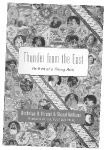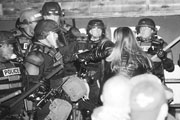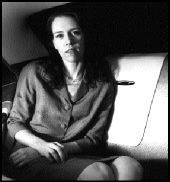First comes bitterness, then there is sweetness and wealth and honor for 10,000 years,” goes a Chinese proverb quoted in New York Times correspondents Kristof and WuDunn’s recent book.
Thunder from the East: Portrait of a Rising Asia
by Nicholas D. Kristof and Sheryl WuDunn (Alfred A. Knopf, $27.50)
The Pulitzer Prize-winning (in 1990, for their reporting on Tiananmen Square) duo makes a compelling case that Asia has only recently lost its position of sweetness and wealth and honor, but this saying defines the primary premise of the book: that the region will soon reclaim its place as the financial and cultural center of the world, displacing the United States and Europe. While a careful reading of the very different chapters will leave most readers questioning this supposition (and that’s the idea), Thunder from the East offers a wide-ranging and informed look at issues facing Asia.
Kristof and WuDunn alternate writing chapters, smartly picking small stories to illustrate much larger problems. The opening chapter by Kristof tells the (scary) tale of his experience in sleepy Turen, Indonesia, where he meets some nice young men who happen to be decapitating accused sorcerers and posting their mutilated heads around town. The obviously colorful story demonstrates how much of Asian life still teeters between ancient and modern. Another Kristof chapter takes us to Badui, a tiny Chinese village where the children are stunted and mentally retarded because of pollution. This heartbreakingly exposes the environmental horror that plagues so much of this continent.
This chapter also reveals a special talent of the husband-and-wife team: leaving no sacred cow unturned. They boldly and thoughtfully explore numerous Sophie’s Choice dilemmas. Kristof explores the essential economic impact that Chinese factories have on the country, wondering, is it worth sacrificing the children of one village to ensure that the entire province survives? Even more unthinkable, he asks if a poor Thai family may be making the best choice by selling one daughter into prostitution and near-certain death from AIDS in order to buy needed medicine and other goods for their remaining children. Perhaps the most radical of his ethical debates concerns the atomic bombing of Hiroshima and Nagasaki. “I arrived in Japan,” he writes “thinking that the bombing was a mistake, but I gradually changed my mind and concluded that it ended up saving lives of Japanese and Americans alike.”
While both writers share this willingness to think unpopular thoughts, WuDunn takes a more businesslike approach to her subjects, and her contributions tend to drag in contrast, focusing intensively on issues related to the Asian economic crises. There’s also an obvious bias toward proving that Asia is on the brink. Readers of the couple’s previous book, China Wakes, a similar series of essays about China predicting the nation would become the dominant superpower, may be surprised that they don’t more directly address the ways in which their earlier predictions haven’t come to pass.
Overall, Thunder from the East is fascinating reading—both for its well-documented vision of a new world and for its use of human voices to reveal that we all may be more similar than we think.








